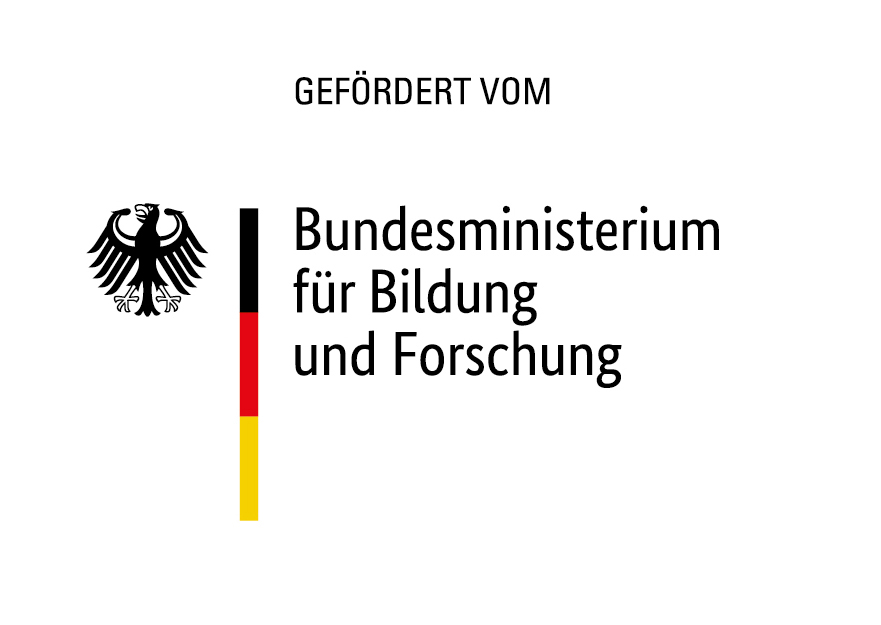
3rd (Inter-) National Conference on Modeling Infectious Diseases
|
Time |
|
Room |
|
08:30 – 09:55 |
REGISTRATION |
Foyer in House 1 |
|
10:00 – 10:45 |
WELCOMING Moderation: A. Kuhlmann, B. Lange & R. Mikolajczyk Welcome from the – MONID Board – MinDirig’in Katharina Peter (BMBF) – RKI President Prof. Dr. Lars Schaade – Program Committee(Highlights) |
Auditorium |
|
10:45 – 11:15 |
COFFEE BREAK & PHOTOS |
Lounge |
|
11:15 – 12:15 |
KEYNOTE I – Prof. Alessia Melegaro (Bocconi University, Italy) Moderation: A. Kuhlmann |
Auditorium |
|
12:15 – 13:00 |
ELEVATOR PITCHES Moderation: A. Kuhlmann |
Auditorium |
|
13:00 – 14:00 |
LUNCH BREAK |
Restaurant Oderberger |
|
PARALLEL SESSIONS: |
||
|
14:00 – 15:30 |
PROJECT UPDATES I OptimAgent & PREPARED & RESPINOW |
R121 |
|
14:00 – 15:30 |
CONTRIBUTED TALKS I – Modeling of interventions & decision-making |
Auditorium |
|
14:00 – 14:15 |
Cornelia Pokalyuk (University of Lübeck) “Inter-city infections and the role of size heterogeneity in containment strategies” |
|
|
14:15 – 14:30 |
Christoph Sticha (Fraunhofer Institute for Translational Medicine and Pharmacology ITMP, LMU University Hospital, Ludwig Maximilian University of Munich) “A General Deterministic Model of Ordinary Differential Equations for a Broad Variety of Different Diseases” |
|
|
14:30 – 14:45 |
Lilian Kojan (University of Lübeck) “A matter of priorities: A discrete choice experiment on public preferences for the management of respiratory epidemics” (OptimAgent) |
|
|
14:45 – 15:00 |
Sascha Korf (German Aerospace Center) “Agent-based modeling for realistic reproduction of human mobility and contact behavior to evaluate test and isolation strategies in epidemic infectious disease spread” (LOKI/PANDEMOS) |
|
|
15:00 – 15:15 |
Isti Rodiah (Helmholtz Center for Infection Research) “Scenarios for RSV Dynamics in the 2024-2025 Season in Germany: Evaluating the Impact of Targeted Interventions with Adaptive Modeling and Population-Based Data – RESPINOW Study” (RESPINOW) |
|
|
15:15 – 15:30 |
Johannes Horn (Martin Luther University Halle-Wittenberg) |
|
|
14:00 – 15:30 |
CONTRIBUTED TALKS II – Technical implementation of models & applications Chair: Tim Conrad, Co-Chair: Inan Bostanci |
R112 |
|
14:00 – 14:15 |
Jan Hasenauer (Rhenish Friedrich Wilhelm University of Bonn) |
|
|
14:15 – 14:30 |
Hugo Soubrier (Epicentre/MSF and Charité – Berlin University of Medicine) |
|
|
14:30 – 14:45 |
Anna Wendler (German Aerospace Center) |
|
|
14:45 – 15:00 |
Aleksandr Bryzgalov (Martin Luther University Halle-Wittenberg) |
|
|
15:00 – 15:15 |
Joao-Marcelo Braza-Protazio (Federal University of Pará, Brazil and University of Leipzig) |
|
|
15:15 – 15:30 |
Marvin Schulte (Fraunhofer Institute for Industrial Mathematics ITWM, University of Kaiserslautern-Landau) |
|
|
15:30 – 16:00 |
COFFEE BREAK |
Lounge |
|
16:00 – 17:30 |
MINI-SYMPOSIUM I Moderation: Stefan Flasche |
Auditorium |
|
Marc Jit (New York University, USA) |
||
|
Alexander Kuhlmann (University of Lübeck) |
||
|
Felix Günther (Robert Koch Institute) |
||
|
Stefan Flasche (London School of Hygiene and Tropical Medicine, UK and Charité – Berlin University of Medicine) “Asymptomatic infections; a key ingredient to pandemic response” |
||
|
17:30 – 19:00 |
POSTERSESSION Accompanying sharing mode: senior + young scientist |
Lounge & R101 |
|
19:00 – 20:00 |
SCIENCE SLAM
|
Auditorium |
|
20:00 – 22:00 |
Get-together |
Restaurant Oderberger |
|
|
|
|
|
09:00 – 10:30 |
MINI-SYMPOSIUM II Moderation: Andrzej Jarynowski (Free University of Berlin) |
Auditorium |
|
Veronika Jäger (University of Münster) and Vitaly Belik (Freie Universität Berlin) “Introduction to COVIMOD Contact Survey and NET CHECK co-location data” |
||
|
Huynhn Thi Phuong (University of Münster) |
||
|
Chao Xu (Martin Luther University Halle-Wittenberg) |
||
|
Steven Schulz (NET CHECK GmbH, Berlin) |
||
|
Sebastian A. Müller (Technical University of Berlin) |
||
|
10:30 – 11:00 |
COFFEE BREAK |
Lounge |
|
11:00 – 12:00 |
KEYNOTE II – Prof. John Edmunds (London School of Hygiene and Tropical Medicine, UK) “The use of mathematical modeling for decision-making in the UK” Moderation: R. Mikolajczyk |
Auditorium |
|
12:00 – 13:00 |
LUNCH BREAK |
Restaurant Oderberger |
|
PARALLEL SESSIONS: |
||
|
13:00 – 14:30 |
PROJECT UPDATES II |
R121 |
|
13:00 – 14:30 |
CONTRIBUTED TALKS III – Methodological research & transmission dynamics Chair: André Karch, Co-Chair: Antonia Bartz |
R112 |
|
13:00 – 13:15 |
Matthias Müller-Hannemann (Martin Luther University Halle-Wittenberg) |
|
|
13:15 – 13:30 |
René Schmieding (German Aerospace Center) |
|
|
13:30 – 13:45 |
Cana Kussmaul (Max Planck Institute for Infection Biology) |
|
|
13:45 – 14:00 |
Julia Bicker (German Aerospace Center) |
|
|
14:00 – 14:15 |
Hannah Derwanz (Martin Luther University Halle-Wittenberg) |
|
|
14:15 -14:30 |
Irene Garcia-Fogeda (University of Antwerp, BE) |
|
|
13:00 – 14:30 |
CONTRIBUTED TALKS IV – Human behavior & social contact structures Chair: Viola Priesemann, Co-Chair: Laura Müller |
Auditorium |
|
13:00 – 13:15 |
Henrik Zunker (German Aerospace Center) |
|
|
13:15 – 13:30 |
Sydney Paltra (Technical University of Berlin) |
|
|
13:30 – 13:45 |
Andreas Reitenbach (Karlsruhe Institute of Technology) |
|
|
13:45 – 14:00 |
Leonard Stellbrink (University of Lübeck) |
|
|
14:00 – 14:15 |
Hendrik Nunner (University of Lübeck) |
|
|
14:15 -14:30 |
Silvan Wehrli (Robert Koch Institute) |
|
|
14:30 – 15:00 |
COFFEE BREAK |
Lounge |
|
PARALLEL SESSIONS: |
||
|
15:00 – 16:30 |
PROJECT UPDATES III |
R121 |
|
15:00 – 16:30 |
CONTRIBUTED TALKS V – Modeling of interventions & decision-making |
Auditorium |
|
15:00 – 15:15 |
Marc Jit (New York University, USA) |
|
|
15:15 – 15:30 |
Nicolas Franco (University of Namur, BE) |
|
|
15:30 – 15:45 |
Johannes Ponge (University of Münster) |
|
|
15:45 – 16:00 |
Noemi Castelletti (Ludwig Maximilian University of Munich) |
|
|
16:00 – 16:15 |
Fabio Sartori (Karlsruhe Institute of Technology) |
|
|
16:15 – 16:30 |
Prerika Nehra (Martin Luther University Halle-Wittenberg) |
|
|
15:00 – 16:30 |
CONTRIBUTED TALKS VI – Data acquisition & parameter estimation Chair: Markus Scholz, Co-Chair: tba |
R112 |
|
15:00 – 15:15 |
Maged Mortaga (University of Lübeck) |
|
|
15:15 – 15:30 |
Thi Huyen Trang Nguyen (Hasselt University, BE) |
|
|
15:30 – 15:45 |
Karina Wallrafen-Sam (Rhenish Friedrich Wilhelm University of Bonn) |
|
|
15:45 – 16:00 |
Sarah Kramer (Max Planck Institute for Infection Biology) |
|
|
16:00 – 16:15 |
Billy Quilty (Charité – Berlin University of Medicine) |
|
|
16:15 – 16:30 |
Raquel Rubio Acero (Ludwig Maximilian University of Munich) |
|
|
17:00 – 19:00 |
[Internal Meeting: SAB & SG MEETING MONID Steering Committee & SAB] |
R121 |
|
|
Posters are available for viewing & discussion (optional) |
|
|
|
|
|
|
|
PARALLEL SESSIONS: |
|
|
09:00 – 10:30 |
YOUNG MONID Panel Moderation: B. Musundi, M. Harries |
R112 |
|
Maren Steinmann (Bielefeld University) “Utilization of claims data for health economic modeling – Insights from RSV and its challenges” |
||
|
Martín Lotto Batista (Barcelona Supercomputing Center) “Leveraging Earth Observation data to predict climate-sensitive infectious disease dynamics” |
||
|
Julian Heidecke (Heidelberg University) “Modeling the impacts of climate change on West Nile virus transmission in Europe” |
||
|
09:00 – 10:30 |
CONTRIBUTED TALKS VII – Modeling of interventions & decision-making Chair: Martin Kühn, Co-Chair: David Kerkmann |
Auditorium |
|
09:00 – 09:15 |
Markus Loeffler (University of Leipzig) |
|
|
09:15 – 09:30 |
Alina Peter (TWT GmbH Science & Innovation) |
|
|
09:30 – 09:45 |
Abigail de Villiers for Florian M. Marx (Ruprecht Karl University of Heidelberg) |
|
|
09:45 – 10:00 |
Alejandra Rincon Hidalgo (NET CHECK GmbH, Berlin) |
|
|
10:00 – 10:15 |
Beate Jahn (UMIT TIROL – Private University For Health Sciences and Health Technology, AT) |
|
|
10:15 – 10:30 |
Julia Mayer (Charité – Berlin University of Medicine) |
|
|
09:00 – 10:30 |
CONTRIBUTED TALKS VIII – Methodological research & transmission dynamics Chair: Berit Lange, Co-Chair: Isti Rodiah |
R121 |
|
09:00 – 09:15 |
Jan Pablo Burgard (Trier University) |
|
|
09:15 – 09:30 |
Seba Contreras (Max Planck Institute for Dynamics and Self-Organization) |
|
|
09:30 – 09:45 |
Ashish Thampi (NET CHECK GmbH, Berlin) |
|
|
09:45 – 10:00 |
Ye Eun Bae (German Research Center for Artificial Intelligence GmbH) |
|
|
10:00 – 10:15 |
Kristina Maier (Zuse Institute Berlin) |
|
|
10:15 – 10:30 |
Matthieu Domenech de Cellès (Max Planck Institute for Infection Biology) |
|
|
10:30 – 11:00 |
COFFEE BREAK |
Lounge |
|
11:00 – 12:30 |
MINI-SYMPOSIUM III – Advanced Modeling Methods in Public Health and Infectious Disease Surveillance |
Auditorium |
|
Ann Christin Vietor (Robert Koch Institute) |
||
|
Matthias an der Heiden (Robert Koch Institute) |
||
|
Johannes Bracher (Karlsruhe Institute of Technology) |
||
|
Ulrich Reinacher (Robert Koch Institute) |
||
|
11:00 – 12:30 |
[Internal Meeting: PROGNOSIS] |
R121 |
|
12:30 – 13:30 |
CLOSING CEREMONY & AWARDS |
Auditorium |
- News
Contact:
Carla Hartmann and Sabine Baumgarten (project management)
E-mail: modellierungsnetz@medizin.uni-halle.de

